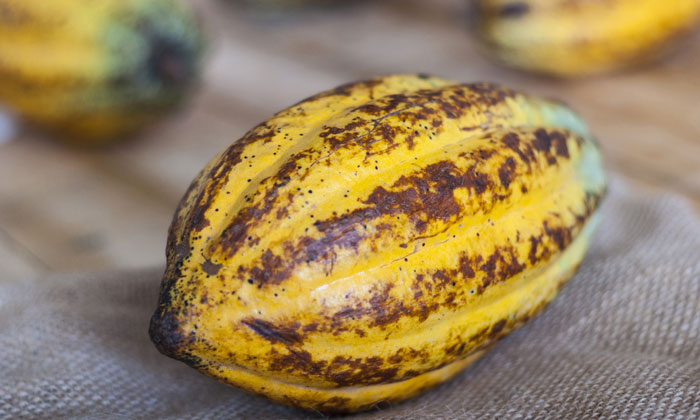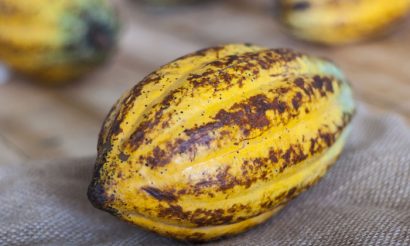Why are cocoa farmers in Côte d’Ivoire still living in poverty?
- Like
- Digg
- Del
- Tumblr
- VKontakte
- Buffer
- Love This
- Odnoklassniki
- Meneame
- Blogger
- Amazon
- Yahoo Mail
- Gmail
- AOL
- Newsvine
- HackerNews
- Evernote
- MySpace
- Mail.ru
- Viadeo
- Line
- Comments
- Yummly
- SMS
- Viber
- Telegram
- Subscribe
- Skype
- Facebook Messenger
- Kakao
- LiveJournal
- Yammer
- Edgar
- Fintel
- Mix
- Instapaper
- Copy Link
Posted: 22 February 2017 | Roy Manuell | Digital Editor | No comments yet
New study shows the road to make cocoa a sustainable and high yielding crop is still long…


Barry Callebaut, one of the leading companies in the food industry from the perspective of promoting sustainable and responsible development warn of the slow progress in Côte d’Ivoire.


Read more of New Food’s exclusive conversation with Barry Callebaut.
- New study on cocoa farmers published by the French Development Agency (AFD) and Barry Callebaut on cocoa farmers
- Cocoa farmers in Côte d’Ivoire earn approximately €0.86 per day, far below the national poverty level
- Yield improvement on cocoa farms would be a crucial step forward
Even with the support of an increasing amount of sustainability projects, most cocoa farmers in Côte d’Ivoire still live far below the poverty line. A new study executed by the French Development Agency (AFD) and Barry Callebaut, the world’s leading manufacturer of high-quality chocolate and cocoa products, estimates that cocoa farmers earn a roughly estimated 568 West African Franc (CFA) per day, approximately €0.86.
This is the direct result of low cocoa yields, on average 435 kg/ha, on already relatively small cocoa farms. On top of that, many of the cocoa trees in Côte d’Ivoire are old and beyond their most fertile age. Plant diseases, such as stem borer, swollen shoots virus (CSSV) and mirid bugs add further to the low productivity.
“Data and statistics on cocoa farmers’ well-being, yields, access to finance, diseases and agricultural practices are scarce…”
The study also showed that basic socioeconomic infrastructure such as primary schools, primary health care and drinking water is often not present in cocoa farming communities. Nevertheless, farmers do not envisage giving up this crop. The main reason for not adopting better agricultural practices is not the lack of knowledge, but the lack of means.
The survey was carried out in 2013-2014 on more than 700 cocoa farmers and their plots in Côte d’Ivoire.
Bruno Leclerc, AFD Country Manager in Côte d’Ivoire:
“Data and statistics on cocoa farmers’ well-being, yields, access to finance, diseases and agricultural practices are scarce, which is a serious constraint to the efficient design and implementation of programs and actions for better cocoa sustainability”.
The barriers to yield improvements are the insufficient use of fertilisers, including organic fertilisers due to insufficient financial means and the lack of access to finance. In addition and of particular relevance in Côte d’Ivoire where trees are old and highly affected by diseases, the requirement to replant cocoa trees with the optimal planting material is often postponed due to a lack of knowledge of best management practices.
Nicko Debenham, Head of Sustainability at Barry Callebaut:
“The results of this study show that Barry Callebaut’s approach to lifting cocoa farmers out of poverty by focusing on yield improvement is the right approach. Nevertheless, it also underlines the size of the challenge and the necessity to work with governments to create the right socioeconomic infrastructure and access to finance and inputs”.









